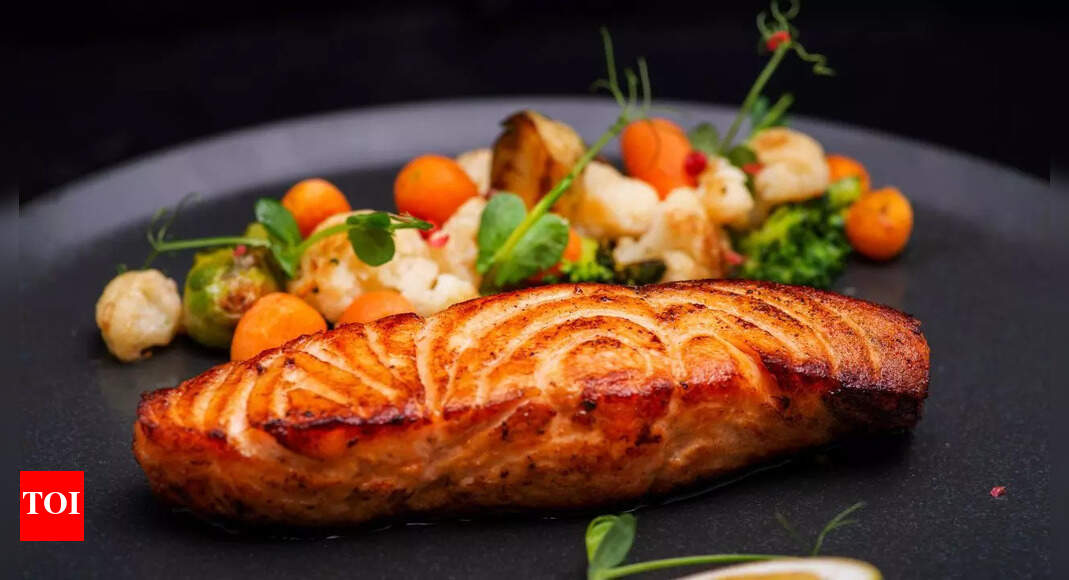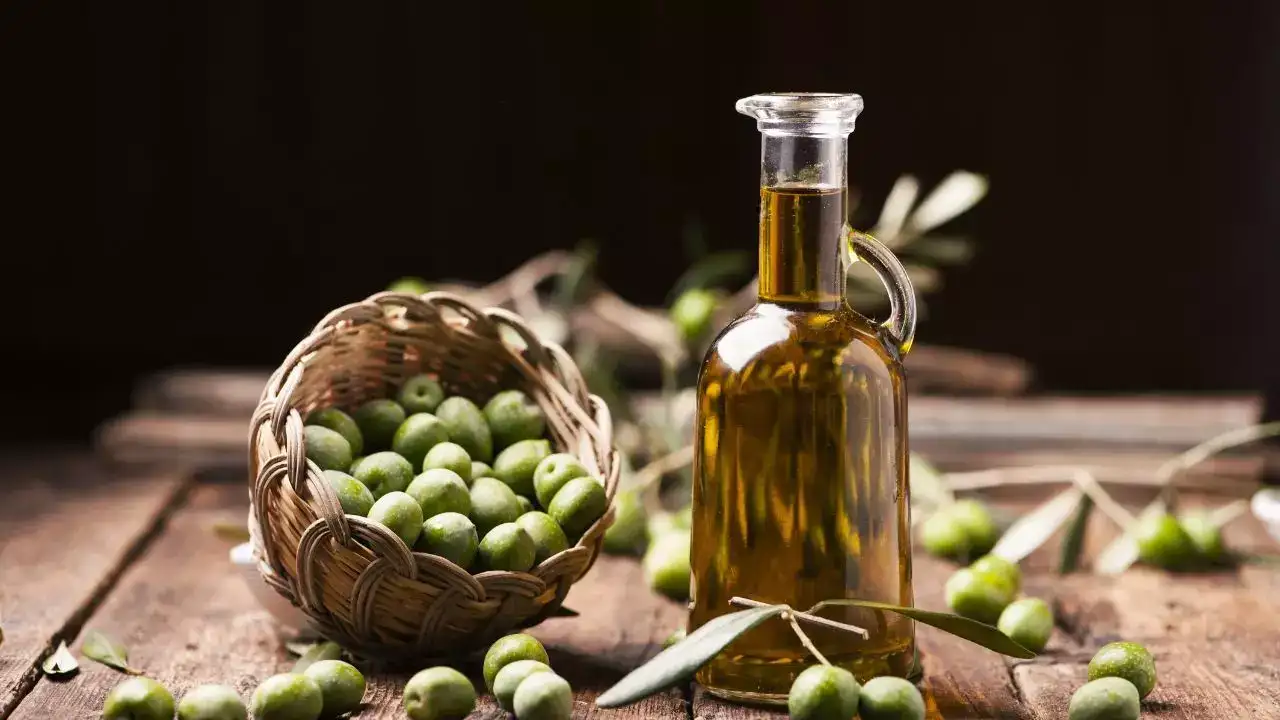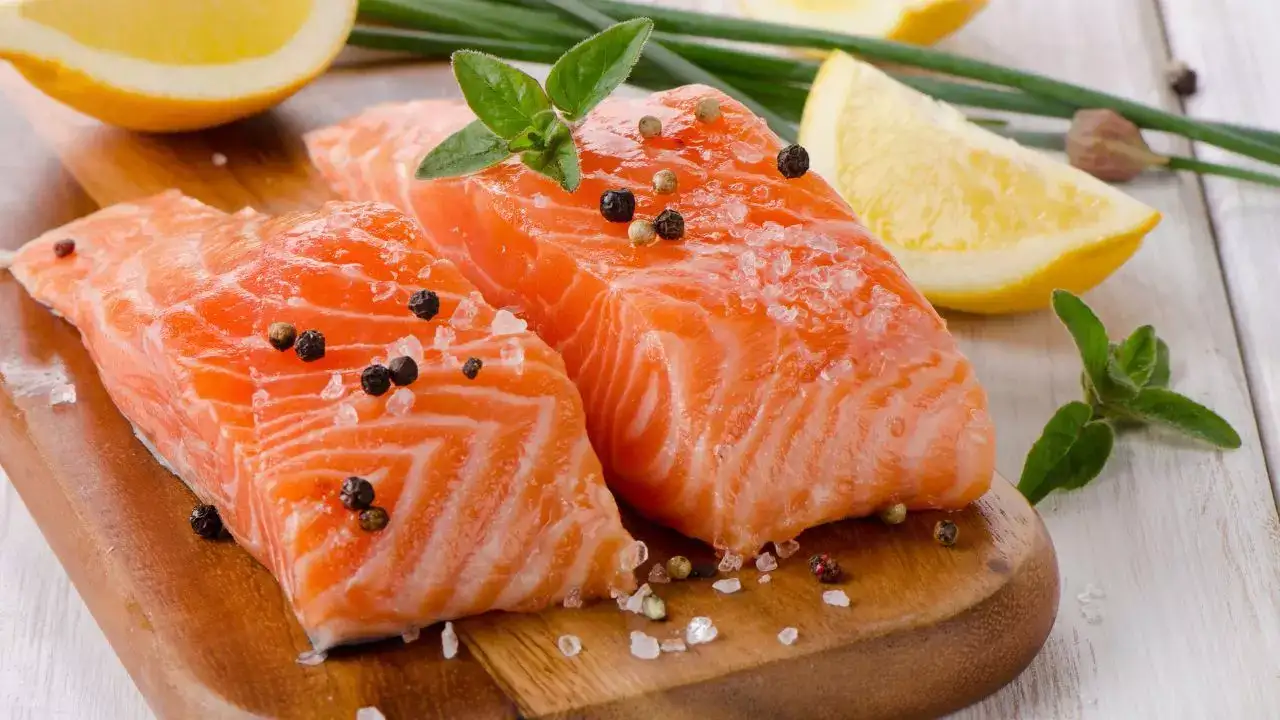10 ancient superfoods that help with natural weight loss and better digestion | – Times of India

Looking to lose weight without extreme diets or supplements? Sometimes, the smartest solutions come from the past. For centuries, people relied on simple, natural foods, rich in fibre, healthy fats, and plant-based protein, to stay lean, energised, and balanced. Now, modern nutrition is catching up to what ancient cultures already knew. These ten time-tested ingredients aren’t just healthy, they actually work with your body’s natural rhythms to curb cravings, support digestion, and keep you fuller for longer. Let’s explore how these ancient foods can help you lose weight in a sustainable, nourishing way.
10 ancient foods to aid weight loss
Lentils

Packed with plant protein and fibre, lentils are a traditional staple that keeps you full without spiking your blood sugar. Their slow-digesting carbs help control appetite and prevent overeating, making them perfect for anyone trying to cut down on calories without cutting out nutrition.
Quinoa

Quinoa may be trendy now, but it’s been used in Andean cultures for thousands of years. It’s a rare plant-based source of all nine essential amino acids, meaning it’s a complete protein. High in both fibre and protein, it gives lasting energy and supports muscle retention during weight loss.
Chia seeds

These tiny seeds absorb up to 10x their weight in water, forming a gel-like texture in your stomach that slows digestion and boosts satiety. Rich in omega-3s and fibre, chia seeds are a smart, simple way to feel fuller with fewer calories.
Oats

Whole oats contain a special soluble fibre called beta-glucan that helps regulate blood sugar and appetite. Unlike refined cereals, oats digest slowly, help reduce cholesterol, and prevent post-meal crashes. Just avoid sugary instant versions, go for rolled or steel-cut oats instead.
Olives and olive oil

Central to the ancient Mediterranean diet, olives and extra virgin olive oil are loaded with monounsaturated fats that support metabolism and reduce belly fat. They also help you stay fuller longer by slowing digestion and stabilising blood sugar levels.
Fermented foods

Ancient cultures swore by pickled vegetables, kefir, and fermented grains, not just for flavour but for digestion. These foods promote healthy gut bacteria, which play a direct role in appetite regulation, nutrient absorption, and even cravings.
Sweet potatoes

Unlike refined carbs, sweet potatoes are high in water and fibre and won’t spike your blood sugar. They keep you full longer, help control appetite, and satisfy carb cravings without the crash. Roast them, steam them, or mash them—they work with almost every diet.
Wild salmon

Indigenous diets often included fatty fish like wild salmon, rich in omega-3s and high-quality protein. These healthy fats reduce inflammation, improve metabolism, and promote muscle preservation, key for burning fat efficiently while keeping your energy up.
Turmeric

Used for centuries in Indian kitchens and medicine, turmeric is rich in curcumin, an active compound shown to reduce inflammation, support digestion, and improve fat metabolism. A little goes a long way, especially when paired with black pepper for better absorption.
Bone broth

Made by simmering bones and connective tissue for hours, bone broth is a traditional healing food packed with collagen and amino acids. It helps repair the gut lining, reduces inflammation, and promotes satiety, making it ideal for those seeking weight loss with digestive comfort.These ten ancient foods are more than just tradition, they’re nutritional powerhouses that fit perfectly into modern health goals. Whether you’re aiming to lose weight, heal your gut, or simply feel more energised, these ingredients offer lasting benefits rooted in centuries of wisdom. Start small, eat mindfully, and let your meals work with your body, not against it.Also read| Refined carbs can damage your teeth like sugar: Common foods to avoid for a healthier smile
var _mfq = window._mfq || [];
_mfq.push([“setVariable”, “toi_titan”, window.location.href]);
!(function(f, b, e, v, n, t, s) {
function loadFBEvents(isFBCampaignActive) {
if (!isFBCampaignActive) {
return;
}
(function(f, b, e, v, n, t, s) {
if (f.fbq) return;
n = f.fbq = function() {
n.callMethod ? n.callMethod(…arguments) : n.queue.push(arguments);
};
if (!f._fbq) f._fbq = n;
n.push = n;
n.loaded = !0;
n.version = ‘2.0’;
n.queue = [];
t = b.createElement(e);
t.async = !0;
t.defer = !0;
t.src = v;
s = b.getElementsByTagName(e)[0];
s.parentNode.insertBefore(t, s);
})(f, b, e, ‘https://connect.facebook.net/en_US/fbevents.js’, n, t, s);
fbq(‘init’, ‘593671331875494’);
fbq(‘track’, ‘PageView’);
};
function loadGtagEvents(isGoogleCampaignActive) {
if (!isGoogleCampaignActive) {
return;
}
var id = document.getElementById(‘toi-plus-google-campaign’);
if (id) {
return;
}
(function(f, b, e, v, n, t, s) {
t = b.createElement(e);
t.async = !0;
t.defer = !0;
t.src = v;
t.id = ‘toi-plus-google-campaign’;
s = b.getElementsByTagName(e)[0];
s.parentNode.insertBefore(t, s);
})(f, b, e, ‘https://www.googletagmanager.com/gtag/js?id=AW-877820074’, n, t, s);
};
function loadSurvicateJs(allowedSurvicateSections = []){
const section = window.location.pathname.split(‘/’)[1]
const isHomePageAllowed = window.location.pathname === ‘/’ && allowedSurvicateSections.includes(‘homepage’)
const ifAllowedOnAllPages = allowedSurvicateSections && allowedSurvicateSections.includes(‘all’);
if(allowedSurvicateSections.includes(section) || isHomePageAllowed || ifAllowedOnAllPages){
(function(w) {
function setAttributes() {
var prime_user_status = window.isPrime ? ‘paid’ : ‘free’ ;
var geoLocation = window?.geoinfo?.CountryCode ? window?.geoinfo?.CountryCode : ‘IN’ ;
w._sva.setVisitorTraits({
toi_user_subscription_status : prime_user_status,
toi_user_geolocation : geoLocation
});
}
if (w._sva && w._sva.setVisitorTraits) {
setAttributes();
} else {
w.addEventListener(“SurvicateReady”, setAttributes);
}
var s = document.createElement(‘script’);
s.src=”https://survey.survicate.com/workspaces/0be6ae9845d14a7c8ff08a7a00bd9b21/web_surveys.js”;
s.async = true;
var e = document.getElementsByTagName(‘script’)[0];
e.parentNode.insertBefore(s, e);
})(window);
}
}
window.TimesApps = window.TimesApps || {};
var TimesApps = window.TimesApps;
TimesApps.toiPlusEvents = function(config) {
var isConfigAvailable = “toiplus_site_settings” in f && “isFBCampaignActive” in f.toiplus_site_settings && “isGoogleCampaignActive” in f.toiplus_site_settings;
var isPrimeUser = window.isPrime;
var isPrimeUserLayout = window.isPrimeUserLayout;
if (isConfigAvailable && !isPrimeUser) {
loadGtagEvents(f.toiplus_site_settings.isGoogleCampaignActive);
loadFBEvents(f.toiplus_site_settings.isFBCampaignActive);
loadSurvicateJs(f.toiplus_site_settings.allowedSurvicateSections);
} else {
var JarvisUrl=”https://jarvis.indiatimes.com/v1/feeds/toi_plus/site_settings/643526e21443833f0c454615?db_env=published”;
window.getFromClient(JarvisUrl, function(config){
if (config) {
const allowedSectionSuricate = (isPrimeUserLayout) ? config?.allowedSurvicatePrimeSections : config?.allowedSurvicateSections
loadGtagEvents(config?.isGoogleCampaignActive);
loadFBEvents(config?.isFBCampaignActive);
loadSurvicateJs(allowedSectionSuricate);
}
})
}
};
})(
window,
document,
‘script’,
);
[title_words_as_hashtags




